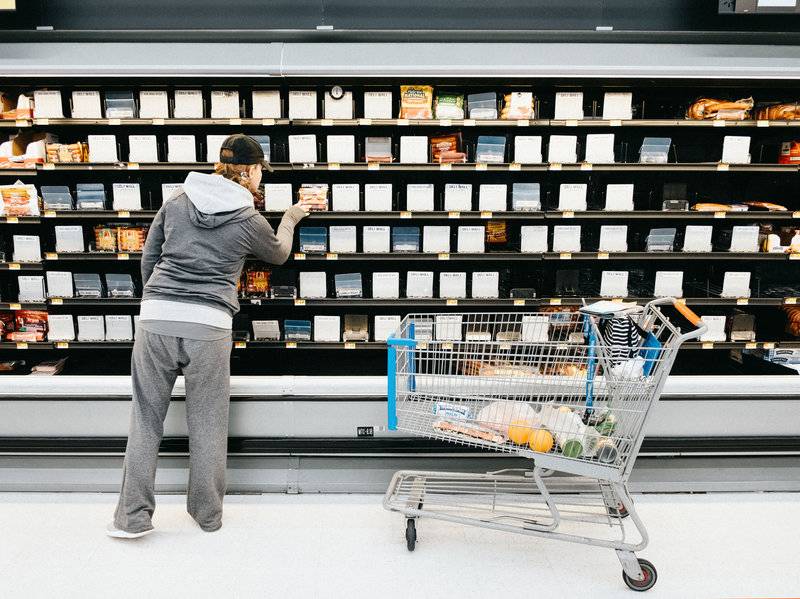At a Safeway in Washington, D.C., this week, 19-year-old Tala Jordan was having trouble checking items off her shopping list.
Fresh meat: Nope. Milk: Nope. Eggs?
"I got liquid eggs instead," she said. "Had to compromise somehow."
Jordan was shopping for a family of four — her sister, mom and grandmother. And like families across America, they saw others making a rush to buy goods and figured they should stock up as well.
Nielsen reported spikes in sales of medical supplies and nonperishable food earlier this month. And it predicted more pandemic-driven shopping as federal, state and local governments urge people to stay at home to avoid spreading the coronavirus.
Retailers assure shoppers they will stay open. Grocery stores provide a critical service to communities, and even in pandemic-struck Italy, where the entire country is under lockdown, grocery stores and pharmacies kept operating.
But shortages of some high-demand items may continue for a while.
UNFI, one of the largest food distributors in the United States, says some warehouses are running at 200% to 500% their average capacity at this time of year. It's like the weekend before Thanksgiving — day after day after day.
Chris Testa, UNFI's president and chief marketing officer, says that in some cases, the suppliers just can't keep up. "There's only so many gallons of milk that can be produced, only so many eggs that can be produced," he says.
Even when supply exists, there can still be shortages.
Adnan Durrani has warehouses full of product. His company, Saffron Road Foods, which makes frozen entrees, predicted this spike in demand.
Still, it takes time for a distributor to pack a truck and send it to a store. "If they fill that store's backroom inventory, that may not be enough because that may sell out in one day or less," Durrani says. "And they're used to having inventories that last a week or two."
